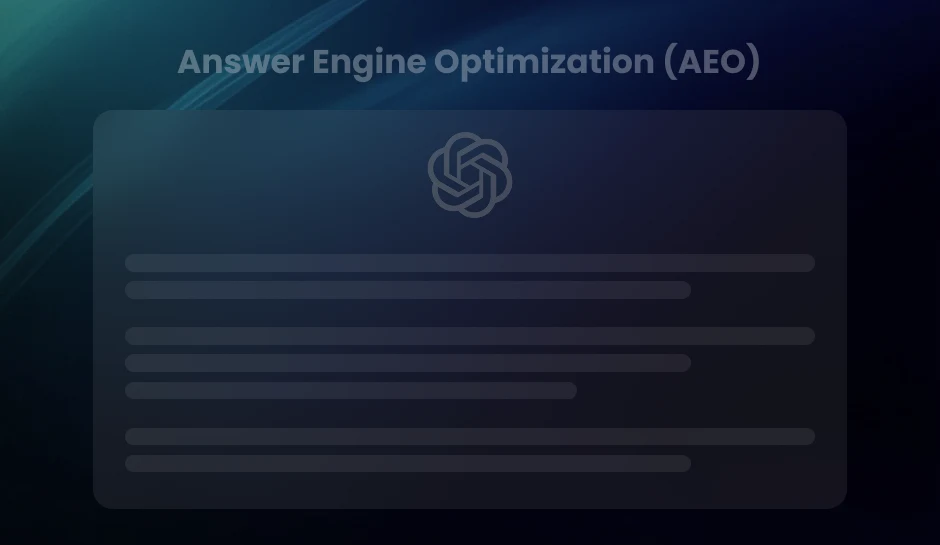
Decipher the Customer Journey: Leveraging Google’s Powerful API Technology
Learn how to leverage Google’s Attribution Reporting API to understand customer behavior across channels, optimize marketing efforts, and enhance ROI. This guide covers advanced attribution models, API integration, and strategies for refining campaigns to drive superior performance and better decision-making.
An Application Programming Interface (API) serves as a bridge, allowing different software applications to communicate effectively. With the Google Attribution Reporting API, businesses gain access to a treasure trove of data, providing granular insights into how various channels, devices, and touchpoints contribute to conversions.
Advertisers harness this sophisticated tool to trace the customer journey, revealing the sequence of interactions that lead to a sale. This comprehension of consumer behavior drives data-backed decisions, optimizing marketing efforts and fueling strategic growth.
The Evolution of Conversion Tracking and Attribution
Marketers have observed a dramatic transformation in conversion tracking techniques throughout the years. Initially, businesses could only infer the impact of their marketing activities through rudimentary insights such as sales volume increases following an ad campaign. The advent of digital analytics provided more concrete evidence of marketing success.
With the rise of online advertising, cookies emerged as a cornerstone for tracking user behavior. Advertisers leveraged them to follow users across websites, knitting together a patchwork quilt of user interactions with different ads. However, the reliance on cookies is diminishing in favor of sophisticated metrics that respect user privacy and offer robust data.
Attribution models have similarly evolved, growing in complexity. Google’s attribution solutions, for instance, have transitioned from the simple, single-click model to more nuanced paradigms. These models attribute varying degrees of credit to multiple touchpoints in the consumer’s path to purchase.
- Last Click:
- First Click:
- Linear:
- Time Decay:
- Position Based:
- Data-Driven:
This model assigns all credit for a conversion to the last ad interaction.
Conversely, this approach gives all credit to the first interaction.
Every touchpoint in the customer journey gets an equal share.
Touchpoints closer in time to the conversion receive more credit.
The first and last interactions receive more credit than the middle interactions.
This model uses machine learning and historical data to distribute credit based on each touchpoint’s actual impact on the conversion.
Google has focused on perfecting the Data-Driven model, highlighting the complex interplay of consumer interactions across multiple channels. By analyzing vast troves of data, Google’s attribution reporting API aims to uncover the true value of each touchpoint within a multifaceted marketing landscape.
Marketers now harness these detailed insights to tailor campaigns that resonate strongly with their target demographics, leading to more strategic and effective advertising investments. The sophistication of these models has reset expectations for what constitutes successful marketing attribution, setting a new standard for the industry.
Implementing Google Ads Integration with Attribution Reporting
Linking Google Ads with Google Attribution enables advertisers to understand the impact of their advertising investments across various channels and devices. This connection allows for a more comprehensive view of the customer journey, optimizing ad spend effectiveness through data-driven insights.
Step-by-step guide on integrating Google Ads with Google Attribution Reporting API
- Access Google Ads:
- Navigate to Google Attribution:
- Link Accounts:
- Define Conversion Actions:
- Import Data:
- Set up Attribution Model:
- Review and Confirm:
Sign into your Google Ads account where your campaigns are managed.
Within the tools and settings menu, find and select the Attribution section.
Look for the option to link Google Ads to Google Attribution and follow the onscreen instructions to establish the connection.
Specify which conversions to track, ensuring that these align with your overall marketing objectives.
Choose the data sources you want to import from Google Ads for Attribution analysis.
Select the preferred attribution model that suits your advertising strategy and objectives.
Verify the settings and confirm the integration to begin collecting and analyzing cross-channel attribution data.
Benefits of integrating these platforms for advertisers
- Integrated platforms offer enhanced visibility into cross-channel performance, revealing the true value of various touchpoints in the conversion path.
- Advertisers gain access to more accurate data, which assists in making informed budget allocation decisions.
- Advanced insights from combined data enable advertisers to tailor their marketing strategies to customer behaviors and preferences.
- Optimization of bid strategies becomes more precise with integrated attribution, potentially increasing return on investment.
Common challenges and troubleshooting tips
- Advertisers may encounter data discrepancies when integrating. Confirming the accuracy of the conversion tracking setup can mitigate this issue.
- Attribution data from the API may sometimes be delayed. For the most accurate analysis, allow sufficient time for data to be processed.
- Differences in how attribution models assign credit can confuse. Familiarizing oneself with model specifics clarifies understanding of reported results.
- Some campaigns may not track effectively post-integration. Revisiting tagging and conversion action settings usually resolves these tracking challenges.
Exploring Multi-Touch Attribution Models
Multi-touch attribution acknowledges the complexity of consumer behaviors, attributing credit to various touchpoints along the customer’s journey toward a conversion. By recognizing that each interaction a consumer has with a brand plays a role in the decision to purchase or convert, this approach provides a nuanced understanding of the effectiveness of different marketing tactics. Traditional single-touch attribution models, like first or last-click, provide an incomplete picture, often overvaluing one touchpoint while undervaluing others.
Models of multi-touch attribution vary, with each assigning conversion credit differently. Linear attribution gives equal weight to all touchpoints, while time decay attribution gives more credit to touchpoints closer in time to the conversion.
The position-based model, also known as U-shaped attribution, allocates more credit to the first and last interactions. Data-driven attribution, one of the more sophisticated approaches, uses machine learning to weight credit based on how impactful each touchpoint is in driving conversions.
Through Google Attribution Reporting API, businesses can integrate and manage these multi-touch attribution models more effectively. The API provides access to attribution data across different channels and campaigns, supporting the comparison of model performance.
Marketers can thus tailor attribution to their unique business goals and measure the performance of their advertising spend with greater accuracy. Consequently, companies can refine their marketing strategies, allocate budgets more effectively, and boost overall return on investment.
Pro Tip- Leverage the Google Attribution Reporting API to experiment with different multi-touch attribution models, such as data-driven or time decay, to better understand the value of each touchpoint and optimize your marketing strategy based on real, actionable insights.
Deciphering Cross-Channel Attribution with Google Reporting API
Analyzing marketing efforts across various platforms can resemble navigating a maze, compounded by the challenge of piecing together disparate data sources. Cross-channel attribution acknowledges the complexity of the customer journey which spans across multiple touchpoints before leading to conversions.
The Challenges of Cross-Channel Attribution
Different channels contribute to the outcome in ways that are not always quantifiable by looking at last-click data alone. Potential customers might interact with several marketing efforts, from social media ads to email campaigns, before making a purchase. Linking these interactions and attributing value to each requires a sophisticated approach to capture the interplay between channels and their impact on consumer behavior.
Using Google Attribution Reporting API to Track Performance Across Different Channels
Google’s Attribution Reporting API counters these challenges by delivering a holistic view of the customer journey. This tool enables marketers to consolidate data from various channels, measure performance, and understand the interdependent effects of cross-channel marketing. Through a data-driven approach, the API provides insights into how each marketing channel influences conversions, allowing for a nuanced allocation of credit to each touchpoint in the conversion path.
Pro Tip- To effectively track cross-channel performance, integrate data from all relevant marketing channels into the Google Attribution Reporting API, allowing you to see the full customer journey. This holistic view will help allocate appropriate credit to each touchpoint, ensuring more accurate insights and better campaign optimization.
Leveraging API Usage and Best Practices
Best Practices for Setting Up and Using Google Attribution Reporting API
Maximizing the benefits of Google Attribution Reporting API begins with its setup. For seamless integration, ensure the API is correctly connected to all necessary data sources. This connection guarantees a comprehensive view across different channels and touchpoints. Utilize the Google API Console to manage your project’s credentials and permissions systematically, as this serves as the control center for your API usage.
A systematic approach to data collection is also essential. Tag accurately to gather consistent and reliable data. Up-to-date tagging according to the latest recommendations from Google improves the precision of attribution reports. As an added measure, regular audits of your tagging setup can prevent discrepancies in data collection.
Advanced Functionalities and How to Leverage Them for In-Depth Analysis
Google Attribution Reporting API grants access to various advanced functionalities. These tools enable users to delve deeper into the data, uncovering granular insights into customer behavior and the conversion paths they take. Leverage path analysis to understand the sequence of interactions leading to conversion. By analyzing paths, strategies can be refined to target consumers more effectively.
Furthermore, use the API to compare the performance of different attribution models. Insights from this analysis assist in determining the most effective touchpoints. This information can then guide the allocation of marketing spend towards the channels with the highest impact.
Understanding API Limits and Efficient Data Retrieval
Google Attribution Reporting API has usage limitations to ensure the service remains stable and fast for all users. Recognize these limits to avoid service interruptions. When querying large amounts of data, it is advisable to use batch requests to reduce the number of calls to the API, thereby improving efficiency.
Smart scheduling of API requests can optimize data retrieval without exceeding the rate limits. This may include scheduling less critical data pulls during off-peak hours. Additionally, caching frequently requested data reduces the number of repeated API calls, thus conserving quota and improving retrieval times.
- Authenticate and maintain secure connections.
- Keep abreast of updates to Google Attribution Reporting API and adjust data collection and analysis methods accordingly.
- Organize and filter your queries to get the most relevant data, reducing the time spent on data cleansing and manipulation.
Pro Tip- To maximize efficiency and minimize service interruptions, leverage batch requests when querying large data sets through the Google Attribution Reporting API. Additionally, schedule less critical queries during off-peak hours and cache frequently requested data to optimize both retrieval times and API quota usage.
Data-Driven Decision-Making via Attribution Data
Leveraging the Google Attribution Reporting API propels businesses into the realm of data-driven decision-making. Access to precise attribution data allows companies to discern the full value of their marketing efforts across various channels and campaigns. With this tool, marketing professionals can quantify and optimize the customer journey, measuring each touchpoint’s impact on the final conversion.
How Google Attribution Reporting API Enables Data-Driven Decision-Making
Business strategists receive granular insights from the Attribution Reporting API, an essential component for constructing a thorough narrative about consumer behavior. These insights guide resource allocation, revealing which marketing tactics resonate most with target audiences. By analyzing the data, marketing teams can adjust their strategies promptly, deploying resources to the most effective channels and thereby maximizing return on investment (ROI).
Tips on Converting Raw Attribution Data into Actionable Insights
- Organize attribution data around key performance indicators (KPIs) specific to business goals, thereby anchoring analysis in tangible outcomes.
- Examine cross-device and cross-channel performance to identify patterns that inform a holistic marketing approach, permitting a cohesive strategy that embraces the complexity of modern consumers’ paths to purchase.
- Use data segmentation to isolate the effects of individual campaigns or channels, allowing pinpointing precise areas for improvement or scaling.
The Role of the Attribution Report in Campaign Strategy
At the locus of campaign strategy development lies the attribution report generated by the API. This comprehensive document aids marketers in understanding the customer journey across multiple touchpoints. In response to these insights, marketers can tailor content, adjust spending, and refine messaging to reach audiences more effectively. Subsequently, the feedback loop of analytics and adjustment results in a campaign strategy that is not only informed by data but also continuously refined by it.
Campaign Performance Optimization Strategies
Utilizing Google Attribution Reporting data for campaign assessment and adjustments can lead to enhanced performance. Comprehensive analysis of this data provides insights into which touchpoints are contributing to conversions, facilitating informed decisions on budget allocation and bidding strategies.
The interplay between attribution data and campaign performance optimization lies in the ability to accurately value each marketing channel’s contribution. By understanding the path customers take to conversion, marketers can fine-tune campaigns to focus on the most effective channels, thus maximizing return on investment.
Examples abound of businesses that have leveraged conversion data to drive superior campaign outcomes. A retailer, after analyzing their attribution reports, might discover that their display ads contribute more to the final conversion than previously credited. In response, they may increase their display ad budget accordingly to capture more prospects earlier in the buying cycle.
Another example could involve an e-commerce company that, through attribution data, recognizes the high conversion value of certain keywords within their paid search campaigns. They then can adjust bids on those keywords to secure a higher ad placement, resulting in increased visibility and potential sales.
Pro Tip- Regularly assess and adjust your campaigns using attribution data to identify high-performing touchpoints. Prioritize channels that significantly contribute to conversions, and optimize budget allocation and bidding strategies to focus on these channels for maximum ROI.
The Future of Attribution Analysis with Machine Learning
Machine learning stands to revolutionize attribution analysis. As computational power grows, algorithms become more sophisticated, allowing for more accurate and nuanced interpretation of data. Through Google’s Attribution Reporting API, machine learning can analyze vast sets of conversion data to identify patterns and insights that would go unnoticed with traditional analysis.
Machine learning will enhance attribution analysis by improving predictive capabilities. Marketers will access forecasts about campaign performance, guiding budget allocation and strategic decision-making. This predictive power also extends to real-time bidding, enabling more efficient ad spending through automated assessments of the value of each impression.
Adapting to machine learning-driven attribution requires an understanding of data science fundamentals. To harness these advancements, businesses may need to upskill their teams or seek specialized expertise. As machine learning becomes more integrated with attribution reporting, continuous learning, and adaptation provide the necessary edge in a competitive digital landscape.
Unlock the Full Potential of Your Marketing with Google Attribution Reporting API
With advancements in digital marketing, the ability to accurately track and attribute conversions has transformed. The Google Attribution Reporting API stands as a beacon in this evolutionary process, offering comprehensive solutions for advertisers and publishers dedicated to refining their marketing strategies.
Through its robust framework, this API feeds into a strategic approach that enables you to assess conversion paths over multiple touchpoints and channels. Leveraging this technology aligns your practices with industry-leading standards, thereby magnifying the effectiveness of your marketing investments.
Integrating your Google Ads into the Attribution Reporting system streamlines the process of comprehending user interactions and the impact on conversions. By embracing multi-touch attribution models, your marketing team can ensure that every customer interaction is accurately valued, clearly illustrating the complex journey from initial engagement to final conversion.
Adaptation to this API not only empowers you with insightful data but also arms you with the means to reinforce privacy and data security. In an era where privacy concerns are rising, embracing tools that respect user data while providing valuable insights is not just preferred but expected.
A glimpse into the future reveals that machine learning will further sharpen the edge of attribution analysis, enhancing predictive capabilities and decision-making processes. The integration of such technologies with the Google Attribution Reporting API will lead to unprecedented levels of campaign optimization and performance.
Key Takeaways
- The Google Attribution Reporting API provides granular data that helps businesses understand the complete customer journey, enabling smarter, data-backed marketing decisions across multiple touchpoints.
- By adopting advanced attribution models, such as data-driven and time decay, marketers can more accurately measure the effectiveness of each channel and optimize campaign strategies for better ROI.
- Connecting Google Ads with the Attribution Reporting API gives advertisers a unified view of cross-channel performance, allowing for more effective budget allocation and ad spend optimization.
- Machine learning integration with attribution analysis will revolutionize marketing strategies by predicting campaign performance, refining targeting, and automating real-time bidding to maximize ad spend efficiency.
Transform your conversion tracking techniques with Google Attribution Reporting API.
Just write to us at info@diggrowth.com and we’ll get back to you.
Ready to get started?
Increase your marketing ROI by 30% with custom dashboards & reports that present a clear picture of marketing effectiveness
Start Free Trial
Experience Premium Marketing Analytics At Budget-Friendly Pricing.

Learn how you can accurately measure return on marketing investment.
Additional Resources
Don’t Let AI Break Your Brand: What Every CMO Should Know
AI isn’t just another marketing tool. It’s changing...
Read full post postFrom Demos to Deployment: Why MCP Is the Foundation of Agentic AI
A quiet revolution is unfolding in AI. And...
Read full post postAnswer Engine Optimization (AEO): The New Frontier of SEO in 2025
As digital experiences continue to evolve, so does...
Read full post postFAQ's
The Google Attribution Reporting API is a tool that provides in-depth insights into the customer journey, helping businesses track and understand how various touchpoints across channels contribute to conversions. By leveraging this API, advertisers can access granular data about user interactions, allowing them to optimize marketing strategies and make data-driven decisions that improve ad spend efficiency and campaign performance.
Multi-touch attribution assigns credit to various touchpoints along the customer journey, offering a more holistic view of how different interactions contribute to a conversion. Unlike traditional models (first-click or last-click), which give all credit to one interaction, multi-touch models such as linear, time decay, and data-driven attribution distribute credit across several touchpoints, providing a more accurate picture of marketing effectiveness.
By integrating Google Ads with the Google Attribution Reporting API, advertisers can gain a comprehensive understanding of how their ads perform across different channels and devices. This integration allows businesses to analyze cross-channel interactions, optimize bidding strategies, allocate budgets more effectively, and refine campaigns based on detailed attribution data to maximize ROI.
Common challenges include data discrepancies, delays in attribution data, and confusion about the attribution models. Advertisers can mitigate these issues by ensuring accurate conversion tracking setup, familiarizing themselves with the model details, and allowing sufficient time for data to be processed. Revisiting tagging and conversion action settings can also help resolve tracking problems.
Machine learning will enhance attribution analysis by providing more sophisticated and accurate data interpretation. It will allow marketers to predict campaign performance, automate real-time bidding, and refine targeting strategies based on patterns identified in large datasets. As machine learning continues to evolve, it will further optimize attribution models, making them even more efficient in driving higher ROI and smarter decision-making.
 Shahzad Mussawir
Shahzad Mussawir  Rahul Sachdeva
Rahul Sachdeva 

